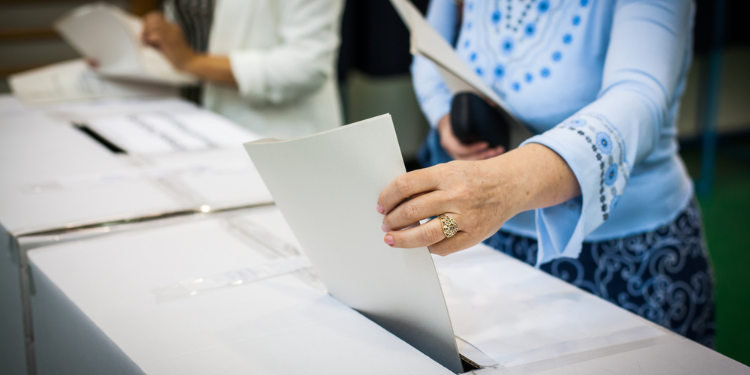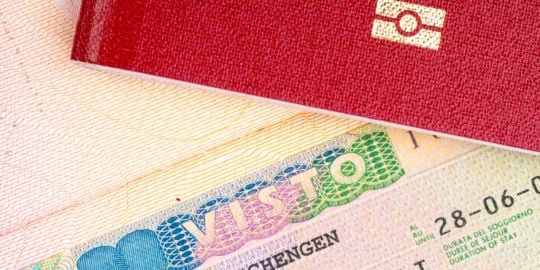The Netherlands just established the first electoral college for its overseas citizens
This is another positive move towards integrating expatriates into the voting process. Dutch expatriates were already eligible to vote in parliamentary elections. The Netherlands established the first electoral college for its overseas nationals to allow the latter to have their say in the constitution of the Senate. The country is both a constitutional monarchy and a parliamentary system. The Parliament (States General of the Kingdom of the Netherlands) consists of two chambers: the Senate (upper house) and the House of Representatives (lower house).
More than 30,000 Dutch people living abroad, who are already registered to vote, reside in Germany. The rest of them live in Belgium, France, the United Kingdom, and the United States. Dutch expats had until February 1 to register for the upcoming elections. The next ballot will be held on March 15 to elect a 25-member electoral college, which will, in turn, vote for the Senate in May. These are indirect elections, unlike parliamentary ones. For the Dutch abroad, this is another victory that reminds us that expatriates remain attached to their country and are keen on participating in their home country's political and social life.
Voting as an expat
The first things to consider are the conditions governing the election itself. Certain questions need to be answered first, including the following: Can you vote as an expatriate? For which elections? Generally, expatriates can vote in presidential, legislative and consular elections. European nationals can also vote in European elections. However, it is always best to check the voting procedures in your host country.
To be able to vote from abroad, expats must also be of legal age and registered on a consular electoral list. In most cases, registration can be done online and is subject to a deadline. For example, if an expat wants to vote in an election this year, the deadline for registration on the consular list of electors would have been December 31, 2022. On the other hand, if the country of origin has a register of its nationals abroad, the latter will be automatically registered on the consular electoral roll. For instance, French expats are automatically enrolled in the Register of French citizens living overseas. However, should French expats return to France, they must request to be removed from the consular electoral list. If that is not the case, they will not be able to vote in future elections.
After ensuring that they are registered on the consular list of electors, expatriates are instructed to go to their respective polling stations with proof of identity to be able to vote. These voting stations are generally located in the embassy or consulate in their host country. They may also be located in an office of the consular district.
Voting by proxy
Expats are required to ensure that the original permit allows for voting by proxy. If so, they will be able to appoint a proxy. The latter needs to be of legal age to vote and be registered on the same consular electoral list as the expatriate (or be registered in the same municipality).
Expats who wish to vote shall first introduce themselves to the relevant authorities. They will then need to present their identity card as well as a sworn statement certifying that he or they will be unable to vote in person. They must also provide the details of their proxy, including the person's full name, date of birth and address. The process can be done at the embassy or consulate in the host country (honorary consul, head of the consular post). It can also be done in the home country: at the police station, at the court of first instance, or at the gendarme station of the place of registration. Make sure to do this early enough for the proxy to be considered. It can be for one or two rounds of voting or elections occurring during any other period of less than one year. Note that expatriates can also vote by e-mail.
Expats put to test
In practice, voting from abroad can be a daunting task. The issue may not arise if you live in a city with all the necessary infrastructure. Information flows smoothly when consular or embassy services are readily available. Voting goes without a hitch, except for perhaps longer or shorter waiting times depending on the number of voters and the nature of the election. Presidential elections are traditionally more popular.
However, the waiting time can be a disincentive. For instance, many voting expats voiced dissatisfaction during the 2017 French presidential elections. There were too few polling stations, overwhelmed staff, and hours-long waiting queues in the cold or heat. In Montreal, for example, there was only one polling station and two in London. In Tokyo, the queue snaked from the embassy down to the residential areas. These were long hours in the heat but in a calm atmosphere.
In 2019, Canadian expatriates criticized the voting process (the postal system), which they considered archaic. Since 1993, any Canadian who had been living abroad for five years or more theoretically lost the right to vote. But, in 2018, the Trudeau government reinstated the right to vote for all Canadians living overseas. The process, however, remained the postal ballot which was deemed complicated, especially for expatriates living in remote areas. With little infrastructure or within an unstable environment (political instability, war, etc.), it is indeed difficult to vote by post mail.
Is electronic voting the answer?
This system has already been set up in several countries, but it has its pros and cons. On the plus side, it makes it easier for more expatriates and locals to vote. Its advocates believe that electronic is the best way to fight abstention. The only constraint is Internet access and the ability to use computer equipment, which is, in their opinion, a minimal limitation.
On the other hand, some raise security issues, such as hacking, and technical errors that can disrupt the voting process. Norway, which had been testing e-voting since the 2000s, suspended the practice in 2014 when the authorities realized that some people had been able to vote twice. In the United States, the "voting machine" is constantly criticized. It allegedly poses a vulnerability threat that can facilitate electoral fraud. However, proponents of e-voting claim the exact opposite, taking the recent presidential elections in Brazil as an example.
In any case, most countries remain cautious about electronic voting, and some restrict it to expatriates. During the 2022 legislative elections, France tried e-voting again for overseas nationals. The country gave up on this practice in 2017 following hacking threats. However, the latest results proved e-voting to be the most popular option, for more than three-quarters of expat voters chose this system. It remains to be seen whether e-voting will gain ground in forthcoming elections. The stakes are high, both in terms of democracy and organization.
















